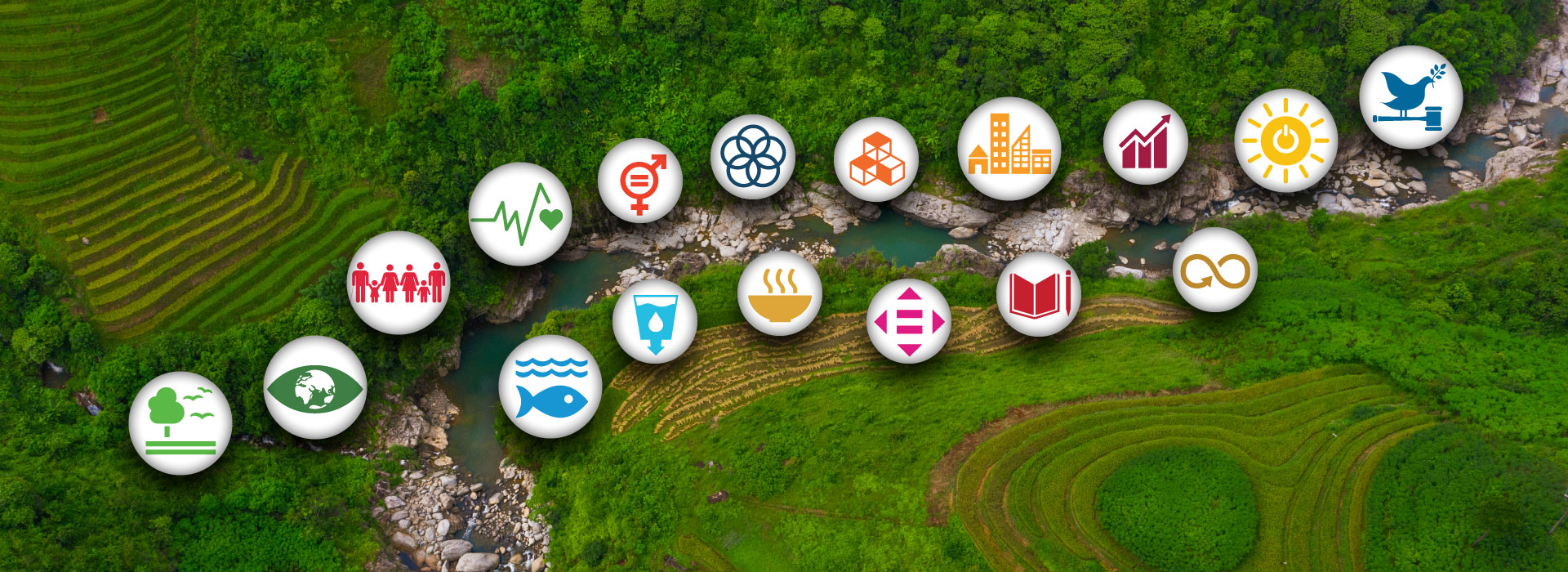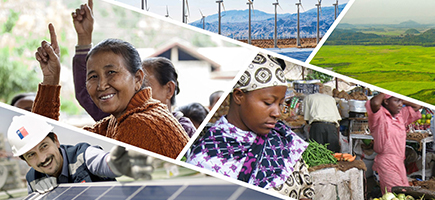The importance of the 2030 Agenda for GIZ’s work
GIZ’s work is guided by the 2030 Agenda. Together with our partners, commissioning parties and clients from the German Government and the European Union, we implement a broad portfolio covering a wide range of areas, from supporting host communities for refugees in Türkiye to driving digital transformation in Kenya. We promote entrepreneurship for more jobs and development in Jordan and team up with our partners to develop solutions for creating liveable, inclusive and climate-responsive cities in Brazil. All these projects contribute towards realising the 2030 Agenda.
Facts and figures on the 2030 Agenda
Ten years after the 2030 Agenda was adopted, the figures make for sobering reading: less than a fifth of the total of 140 targets are on track. There has been no change in more than 30 per cent of targets and in some cases the situation has actually deteriorated. No country will achieve the SDGs by 2030 at the current rate. Despite some progress being made, more than 600 million people are projected to still be living in extreme poverty in 2030 (SDG 1), while the number of people currently facing hunger across the globe is the same as it was in 2005 (SDG 2). If the current rate of change continues, gender-specific inequalities in legislation will persist for another 300 years (SDG 5). At the same time, greenhouse gas concentrations and subsidies for fossil fuels are reaching record levels – a considerable setback for the energy transition (SDGs 7, 13).
Financing the 2030 Agenda
Developing countries face an annual shortfall of 4 trillion US dollars for implementing the SDGs – 56 per cent more than just four years ago. In order to close this growing Developing countries face an annual shortfall of 4 trillion US dollars for implementing the SDGs – 56 per cent more than just four years ago. In order to close this growing financing gap, far-reaching reforms are needed along with the joint commitment of society as a whole, particularly in the form of increased investment by the private sector in sustainable projects. Government funding alone is not enough – only through cooperation and innovative financing approaches can the 2030 Agenda still be achieved.









